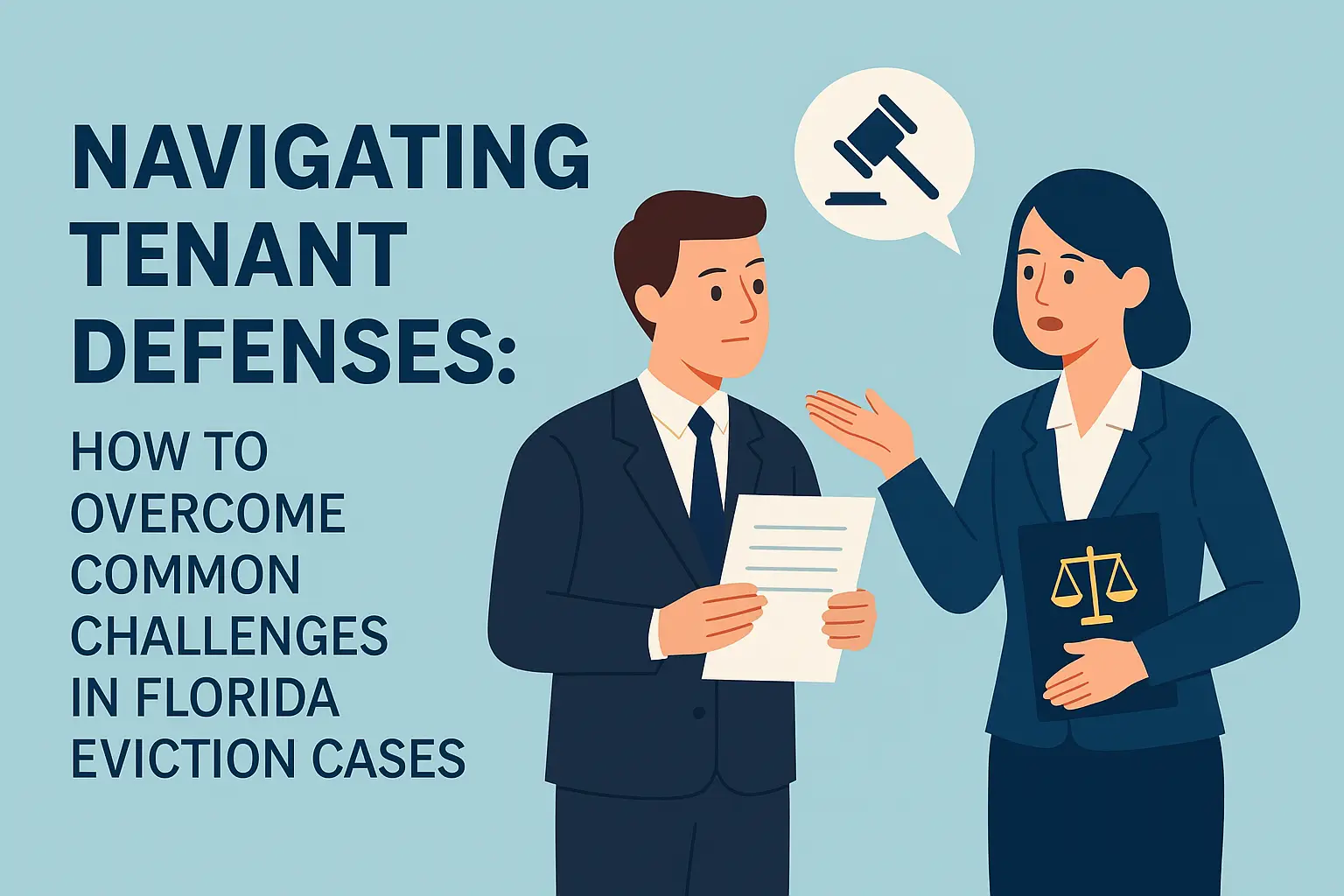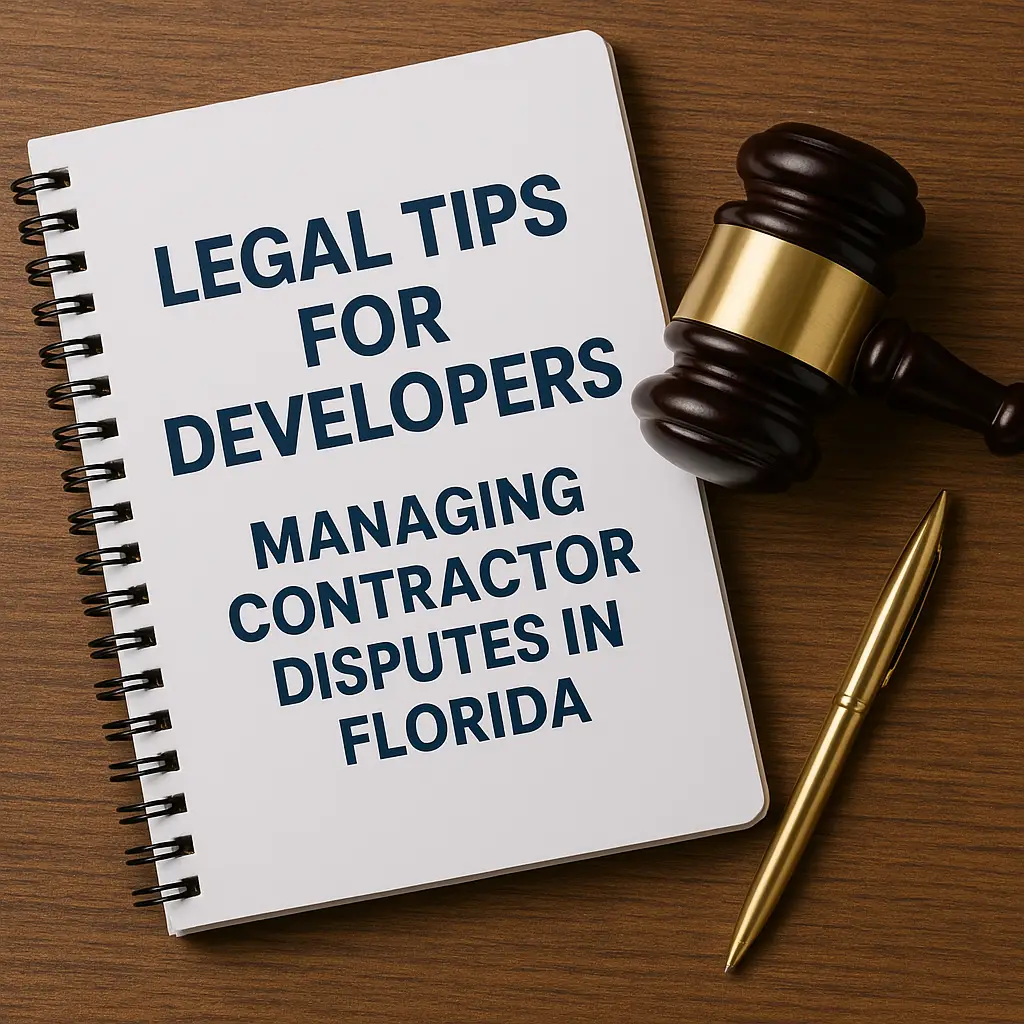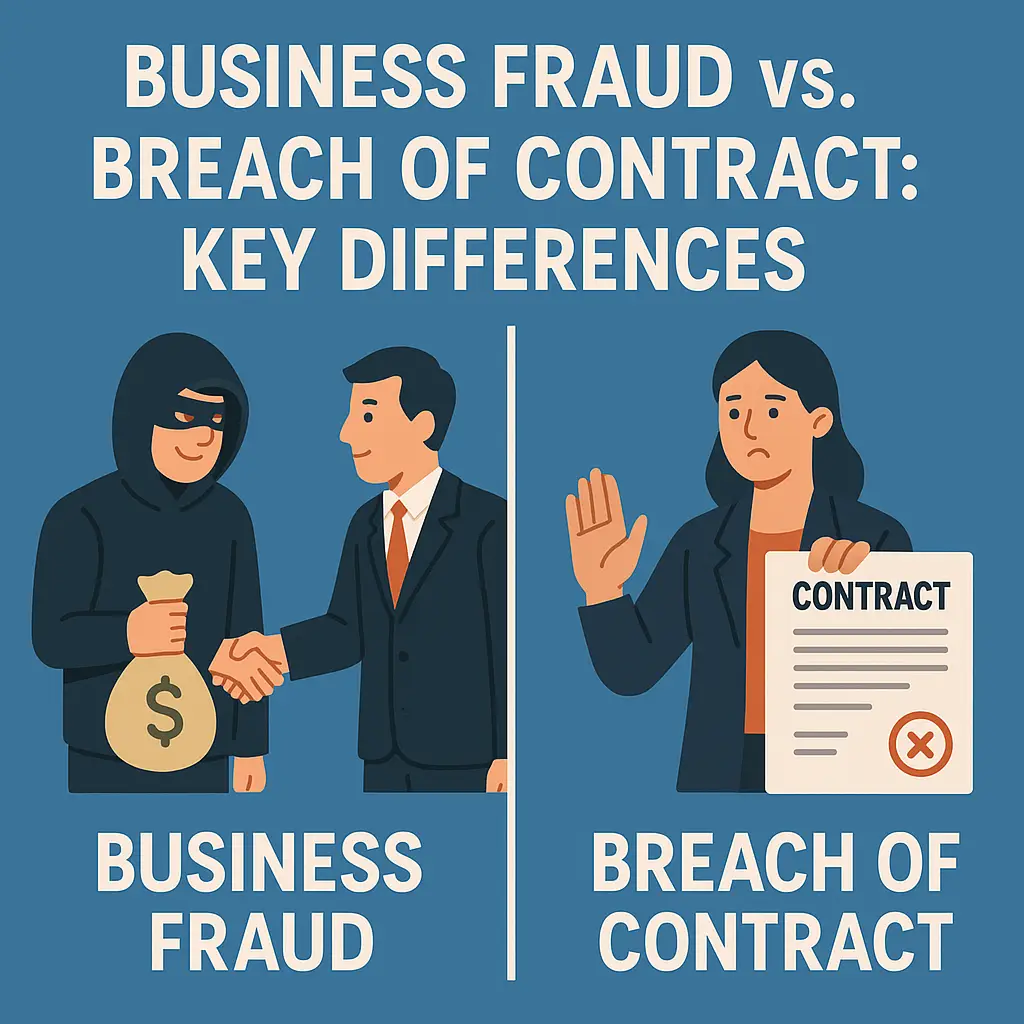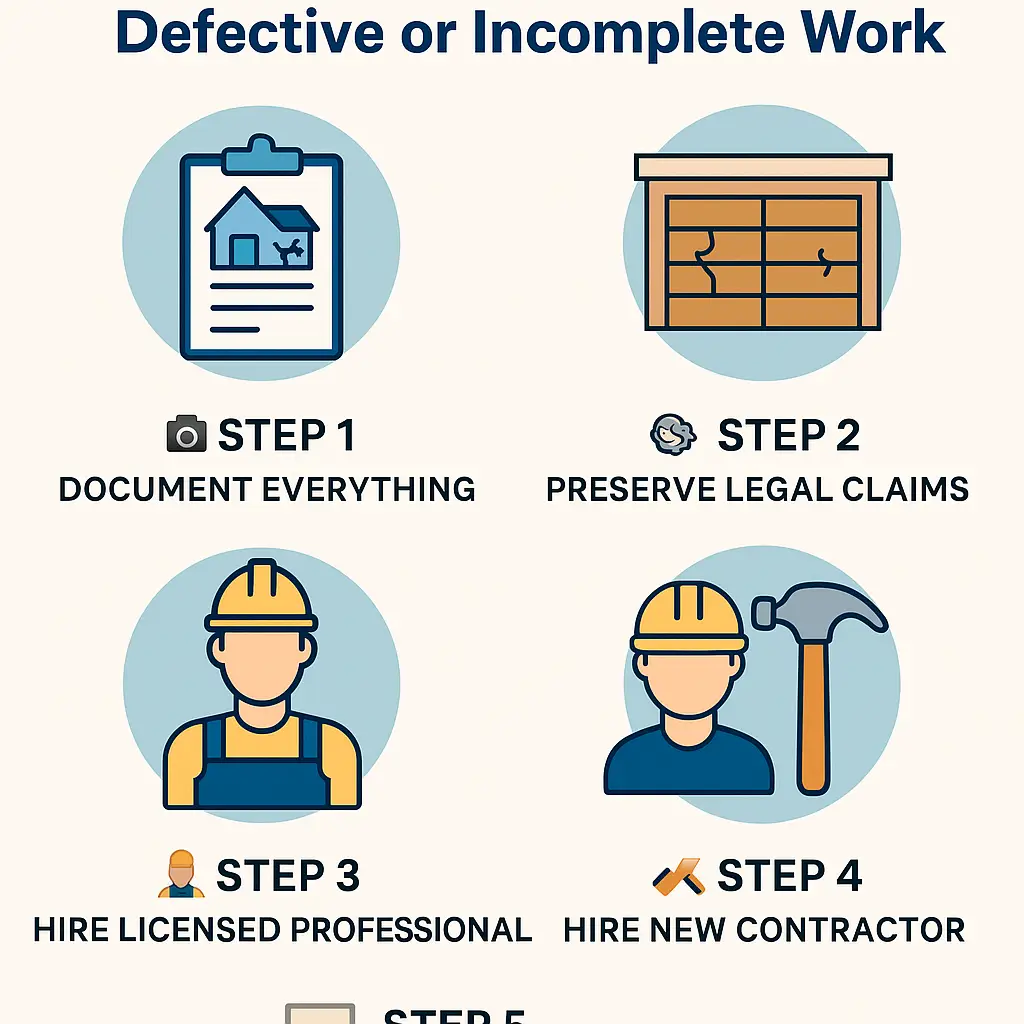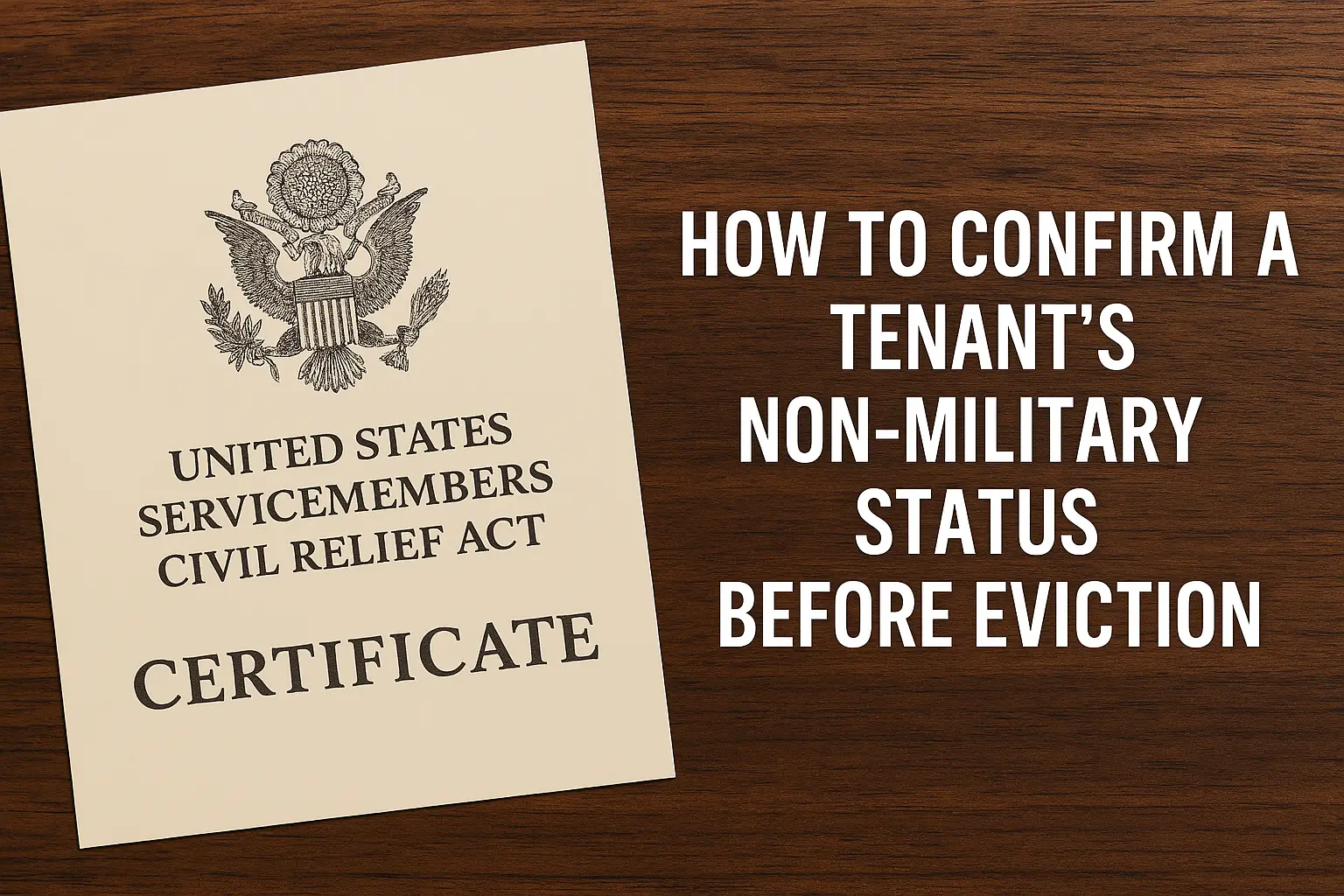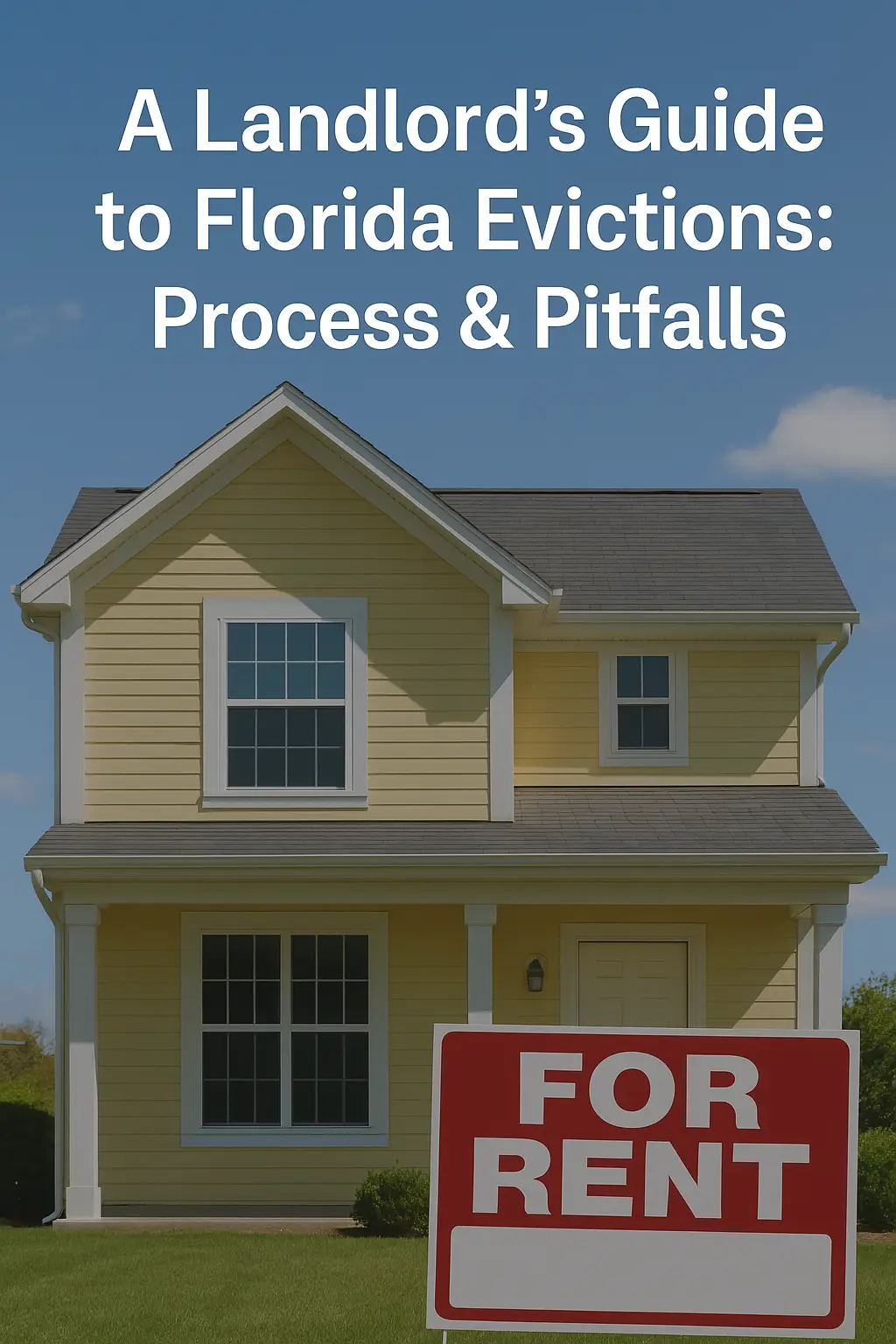Navigating Tenant Defenses: How to Overcome Common Challenges in Florida Eviction Cases
Evictions in Florida aren’t always as simple as serving a notice and filing paperwork. In many cases, tenants actively participate in the process and raise legal defenses that can delay or even prevent a landlord from obtaining possession of the property. Whether you’re evicting for non-payment of rent, lease violations, or a holdover tenancy, it’s … Read more

